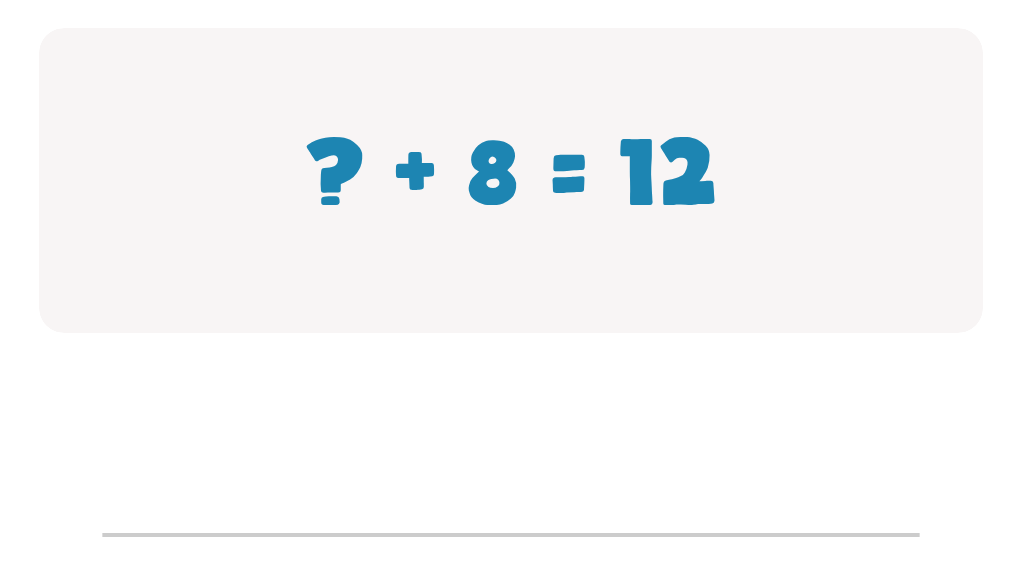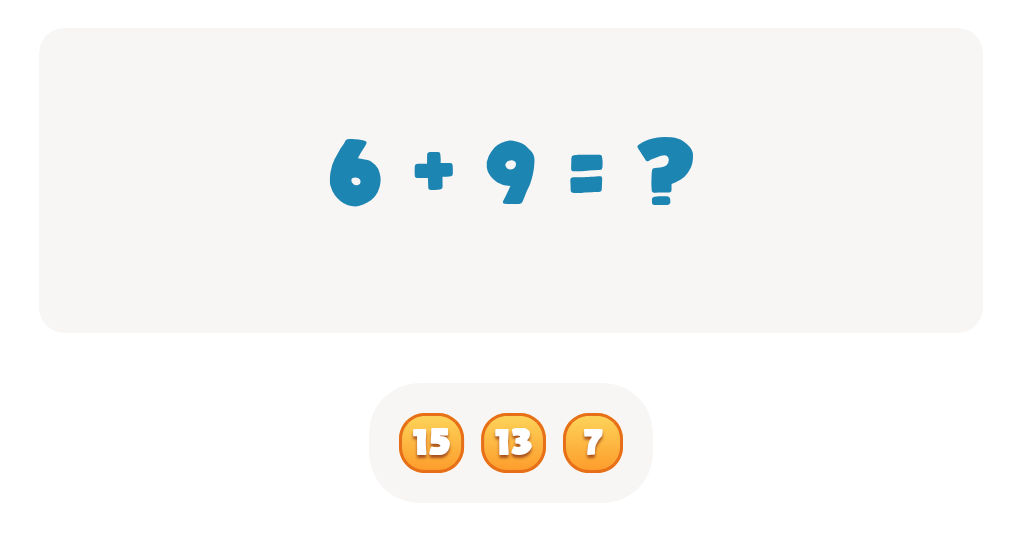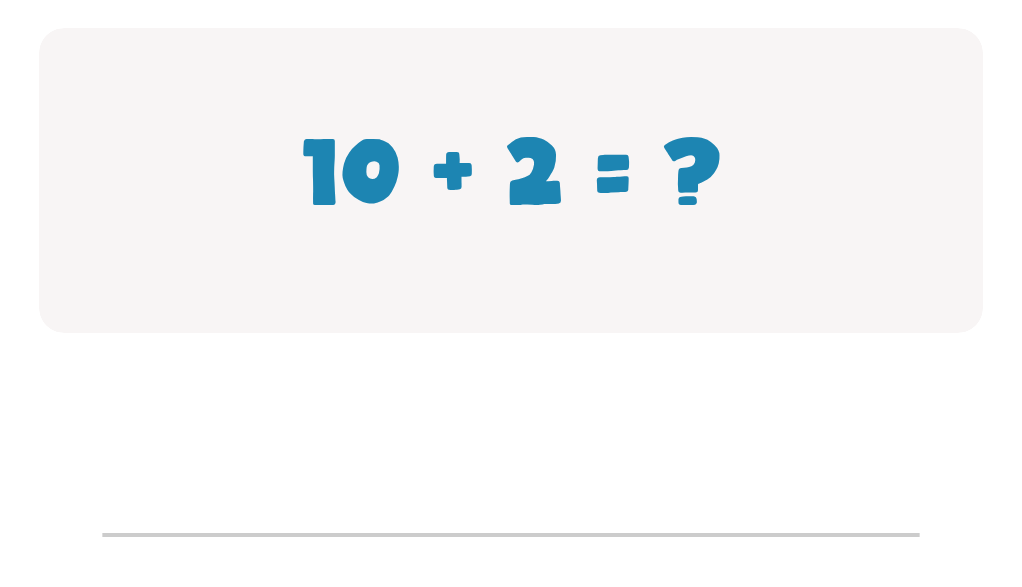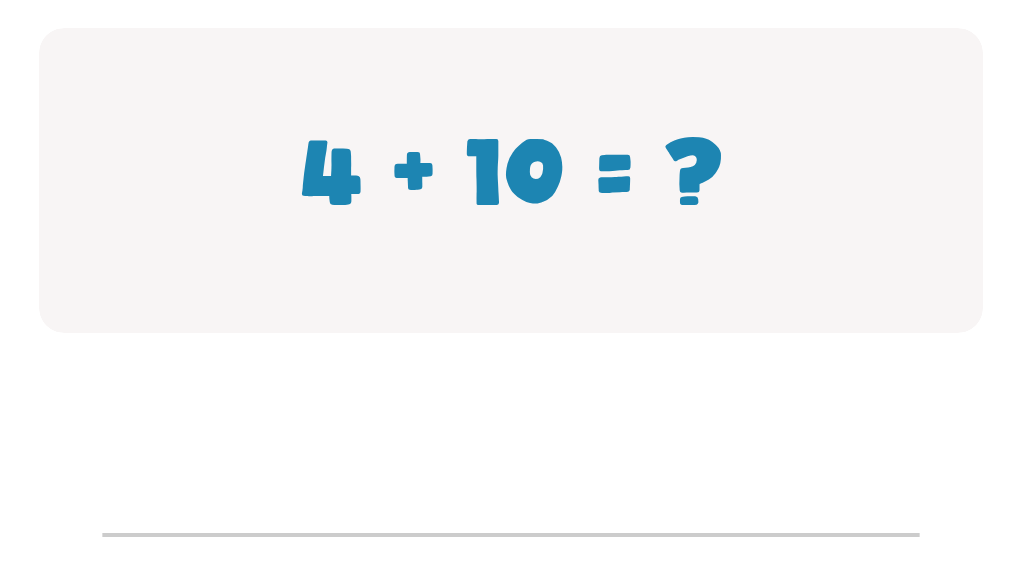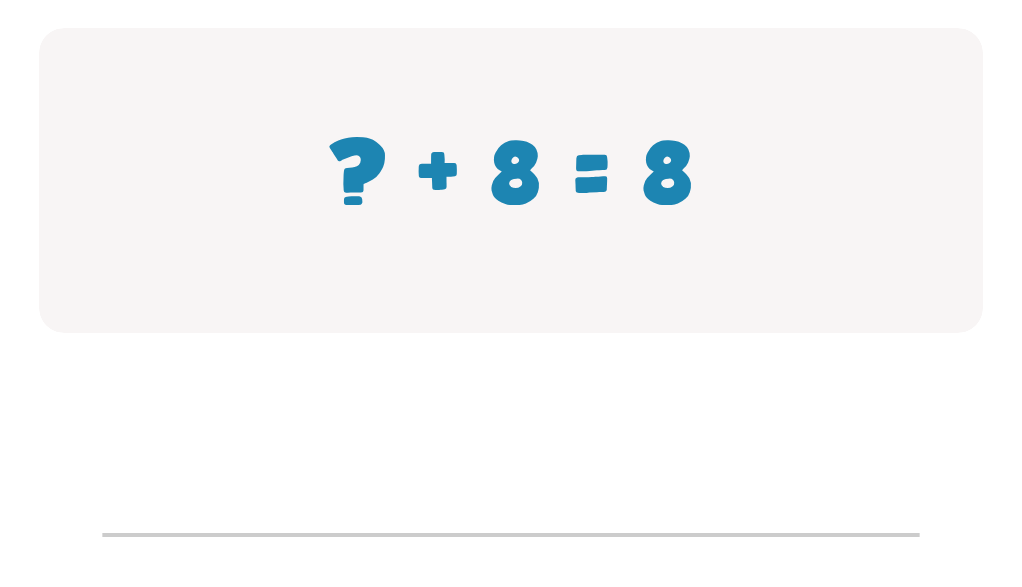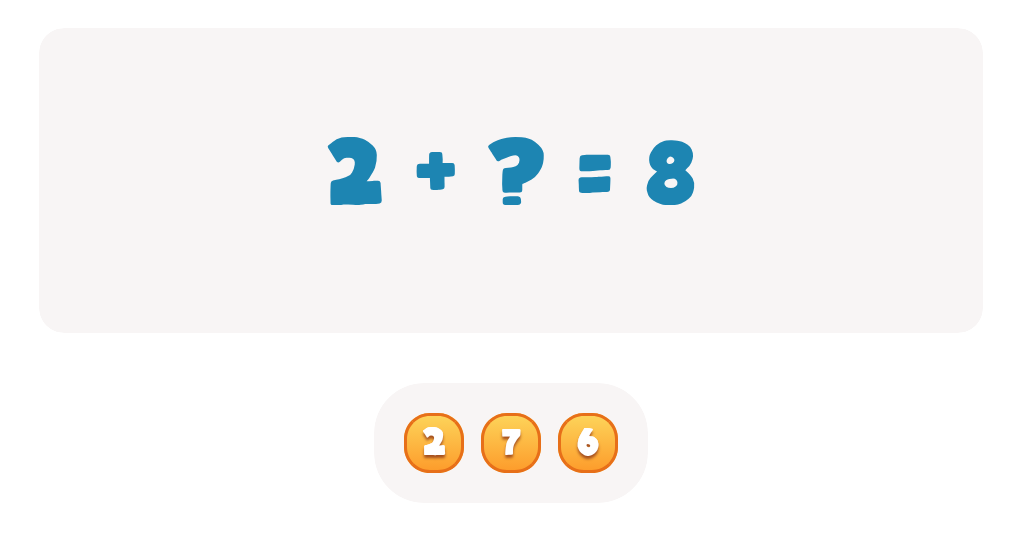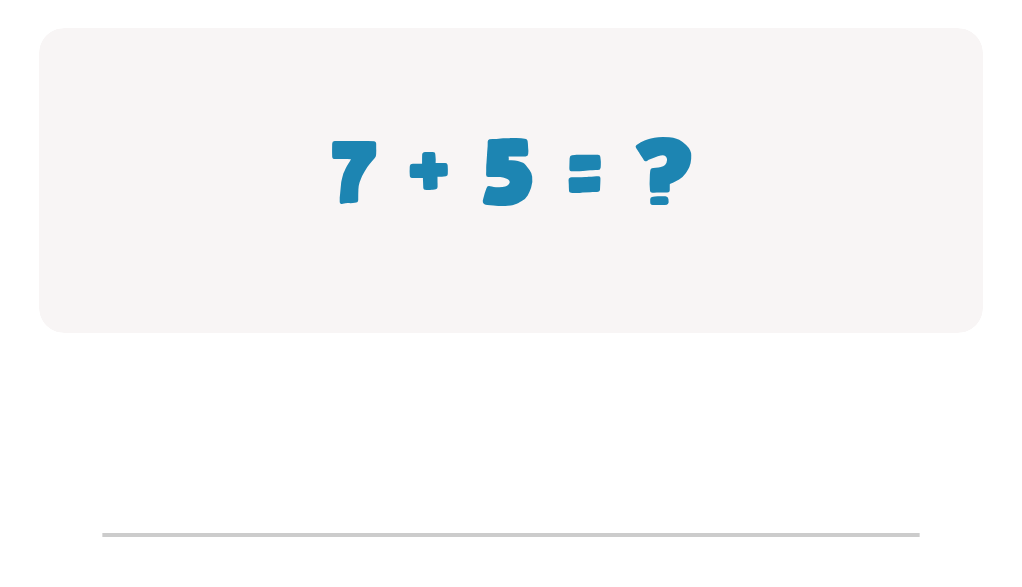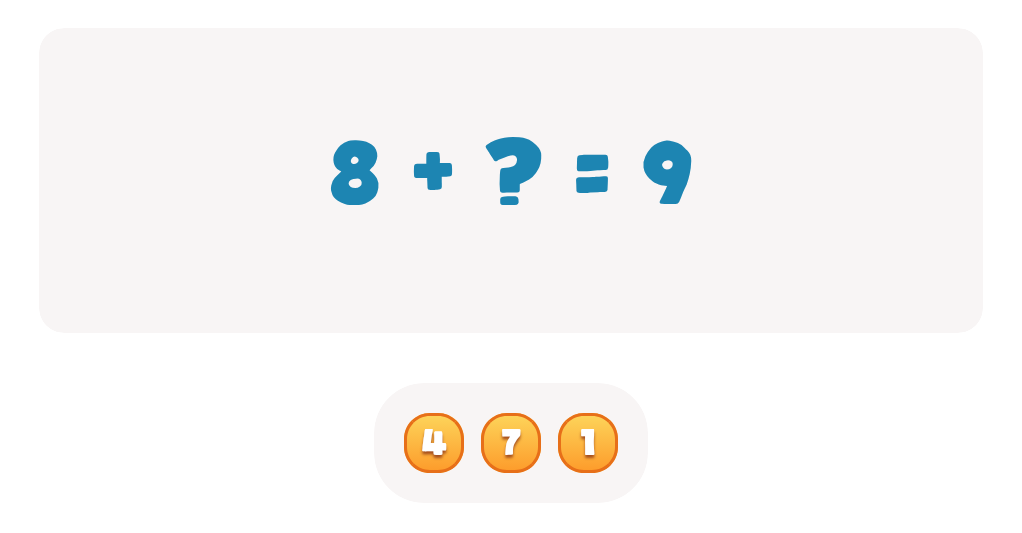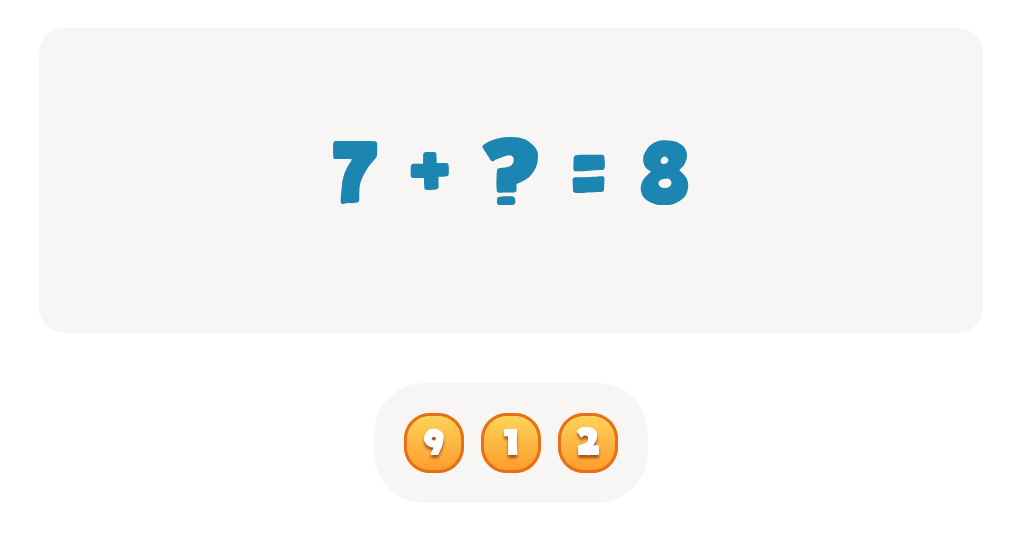Problem-Solving Skills Normal Addition Facts Worksheets for Ages 5-6
5 filtered results
-
From - To
Discover our engaging "Problem-Solving Skills Normal Addition Facts Worksheets" designed specifically for children aged 5-6. These worksheets foster essential mathematical skills through fun and interactive activities, helping young learners master addition facts while enhancing their problem-solving abilities. Each worksheet presents age-appropriate challenges that encourage critical thinking, allowing kids to apply their knowledge in various scenarios. With vibrant designs and intuitive layouts, these resources make learning enjoyable and accessible. Perfect for teachers and parents alike, our worksheets provide a solid foundation in mathematics while promoting confidence in young students. Boost your child’s math proficiency with our delightful and educational worksheets today!


Tricky Problems Worksheet: Part 1


7 Continents and 7 Seas Worksheet


Tricky Problems Worksheet: Part 2
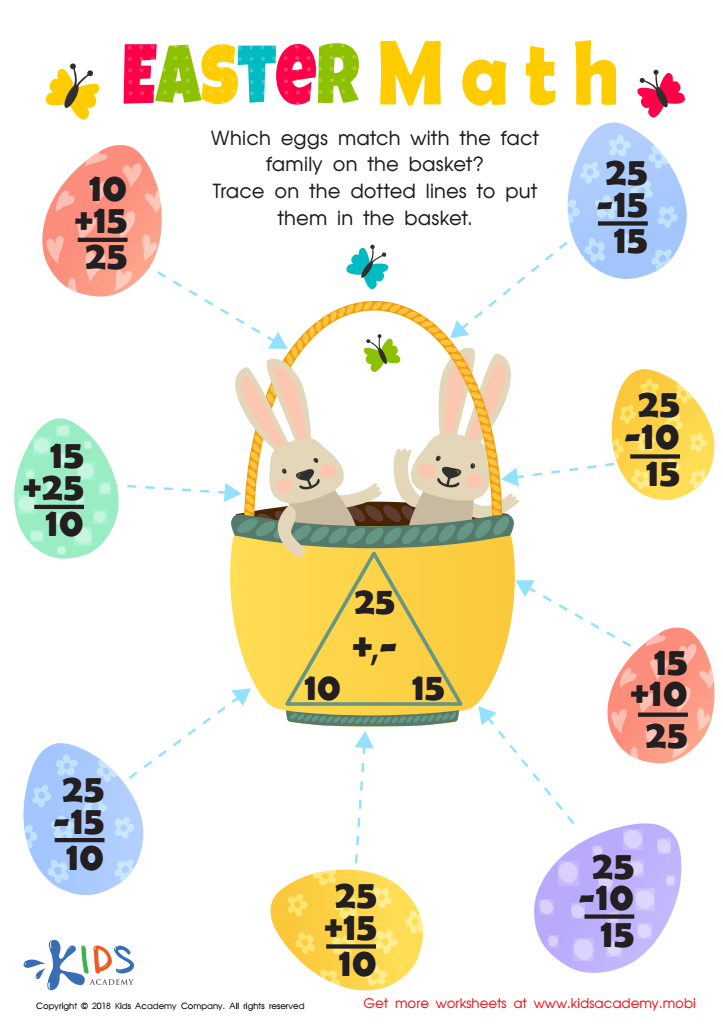

Fact Families: Easter Math Worksheet
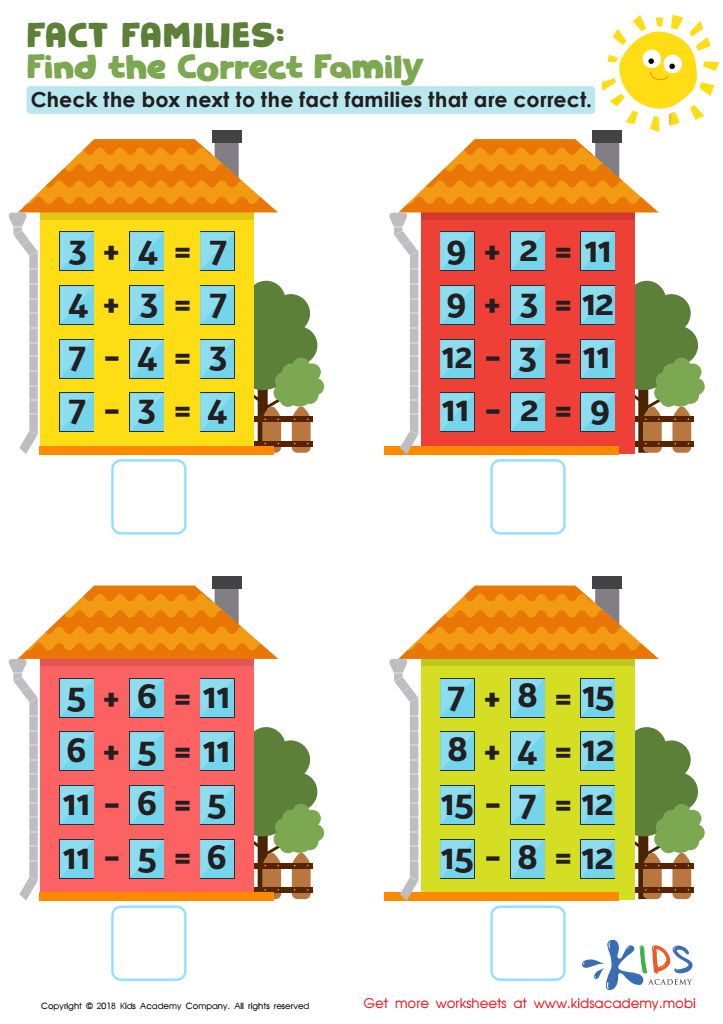

Fact Families: Find Correct Family Worksheet
Parents and teachers should prioritize developing problem-solving skills related to normal addition facts for children aged 5-6 because this foundational stage in mathematics sets the stage for future learning. Mastering basic addition not only enhances a child's ability to solve arithmetic problems but also fosters critical thinking, logical reasoning, and analytical skills. At this age, children learn best through engaging, practical experiences, which makes addition an excellent objective to incorporate play-based learning.
Emphasizing problem-solving skills encourages children to understand concepts rather than memorize facts. When children can analyze situations, choose appropriate strategies, and apply their knowledge, they become more confident and resilient learners. Additionally, these skills contribute to their overall cognitive development, preparing them for more complex mathematical concepts in the future.
Equally important, fostering a love for math at this early age helps shape positive attitudes toward learning and can mitigate math anxiety later on. By supporting children in mastering addition and problem-solving, parents and teachers ensure that students are equipped not only with essential mathematical skills but also with a growth mindset that will benefit all areas of their education. This holistic approach to learning lays the groundwork for lifelong success in mathematics and beyond.
 Assign to My Students
Assign to My Students
